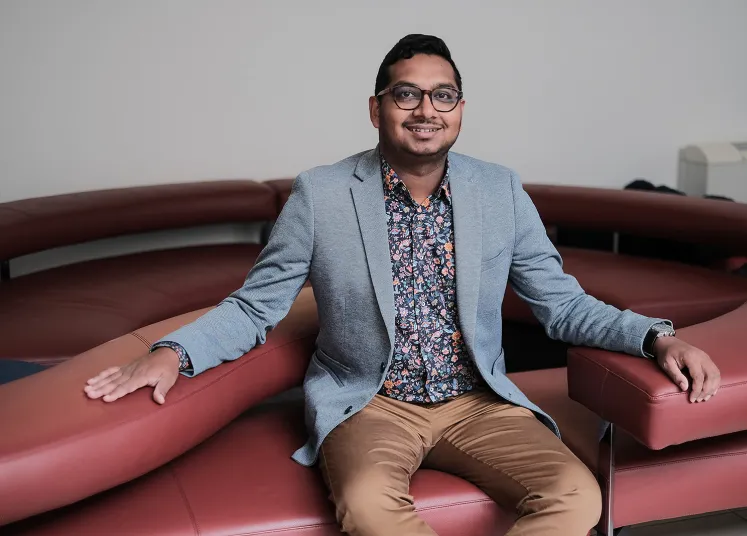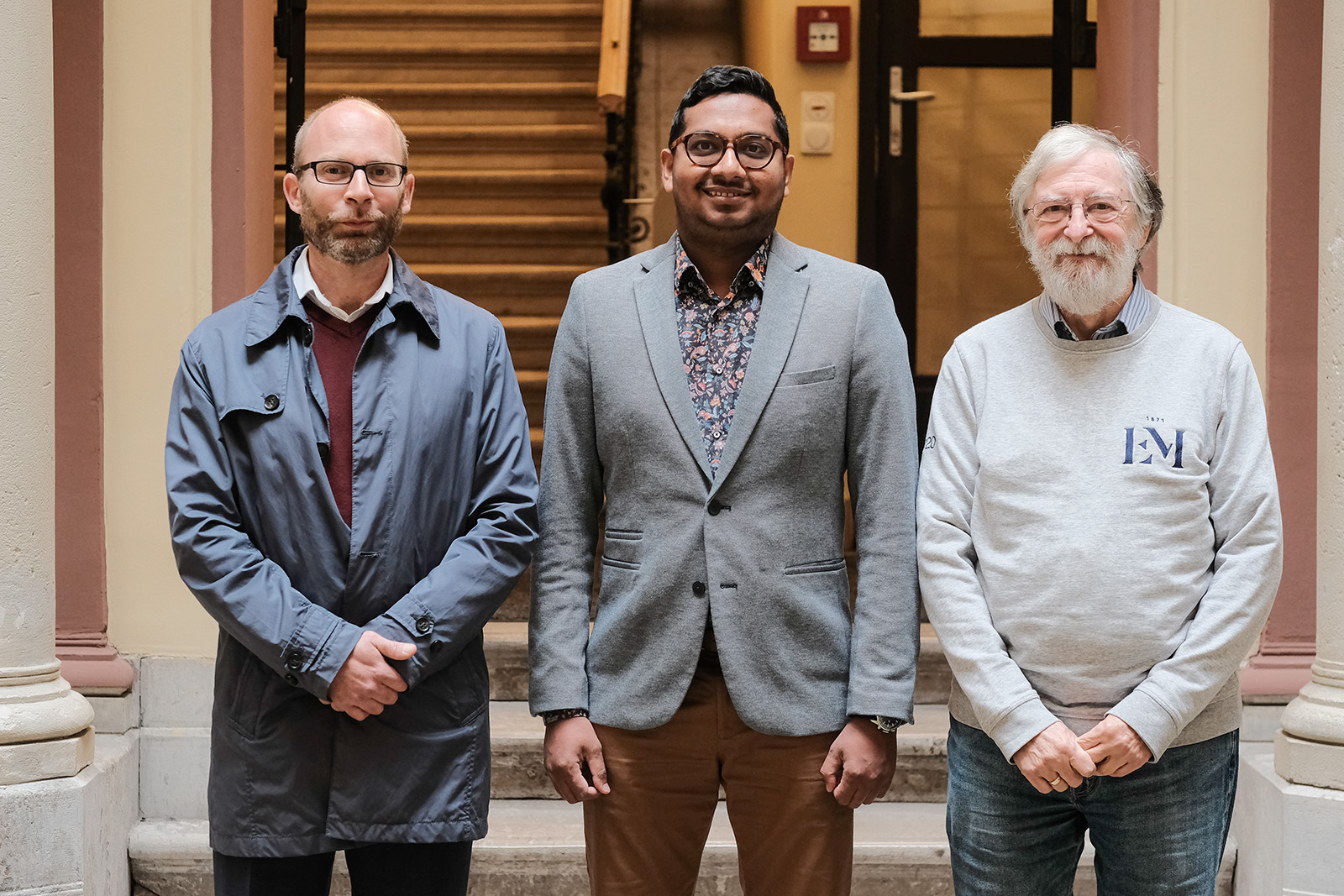
As a little boy, he dreamed of becoming a manager of luxury hotels and fine-dining restaurants; today, as a researcher, he is working on how this sector can embrace technological changes to remain sustainable. As a visiting professor, Dr. Mustafeed Zaman from the EM Normandie Business School (France) visited the Faculty of Economics to share his unique experiences and thoughts in the marketing field.
– First of all, welcome to Hungary! Have you ever been here? How do you like your staying so far?
This is my first time in Budapest, and I am enjoying it. I am so happy to meet professor Mandják in person after more than one year, and all the colleagues from the Marketing Department are so welcoming. The city is magnificent, and I am trying to do some tourism activities with some colleagues after my lectures. All is perfect so far!
– You already had a presentation for your colleagues at the ELTE GTK. How was speaking for them instead of the students?
Well. We can call it a session to exchange our knowledge. As professors, we have our fields of expertise for doing research. For my part, I am doing research on AI, service robots, service digitalization, and emerging technologies in tourism and hospitality, among others. So, when we have an opportunity like this, we often share our ongoing research projects or published articles with our colleagues. It helps us get feedback from our peers and starts research collaboration.
– What was the reason you decided to choose business as your field of expertise?
Well, that is a tricky question! (laughing) When I was young, I was interested in hospitality management; I imagined that growing up, I would work for a leading hotel chain and eat in fine-dining restaurants. So, I did my Bachelor's degree in hospitality management, followed by a Master’s degree in luxury hospitality management. After that, I also worked in different marketing positions for hotel chains (i.e., marketing manager, digital marketing manager, etc.). While working as a digital marketing manager in Paris, I loved dealing with the challenges we faced due to emerging technologies. So, I wanted to go further and continue my Ph.D. in managing technological changes in tourism SMEs. Now, with all these experiences, I enjoy teaching my students digital marketing and related topics.

– On 4 November, you gave a talk on digital marketing at ELTE GTK. Why is this field an essential part of today’s marketing trends?
It is a question of visibility and reaching customers. Today, most customers are online and spend hours on digital and social media platforms daily. For instance, in France, people spend more time on the internet than in front of the television. That is a significant change in customer behavior, and brands are adapting their marketing and communication channels accordingly. So, digital marketing has become essential.
– So, can we say that a student studying marketing should be a flexible person?
Yes! For sure. This is something fundamental. First, students should know and understand marketing basics, like marketing principles, segmentation, etc. These are the “must-to-be-known” part of the story, but afterward, the question will be how to apply this knowledge in a hybrid (traditional and digital) marketing context. Customers' decision marking processes have become increasingly complex, and marketing students should understand related challenges (e.g., multiple channels, customer-to-customer interactions, online reviews, etc.). Moreover, students will also need some technical expertises, such as creating a website or a Google advertisement using Google Ads. So, students in marketing should be very flexible to embrace changes and develop new skills. But this won’t be a challenge for those passionate about marketing.
– You have a wide range of research interests, next to Marketing, AI & Service Robots, Digitalization of Services, Technology Acceptance, Innovativeness, Travel, and Tourism & Hospitality Management. Isn’t it hard to keep everything in mind parallelly?
Indeed, there are many topics, but they are interconnected. For instance, currently, I'm focusing on fine-dining restaurants, and I'm doing research from different aspects. I'm studying how digital technologies may enhance the fine-dining experience. Do customers want robots to serve their dishes? How can restaurants use data to optimize their performance? What are the challenges for service digitalization in the context of fine-dining restaurants? So, as you can see, there are too many topics, but the fine-dining restaurant interrelates them.
– Do you have any recommendations on how young university student studying marketing could broaden their knowledge?
They should be curious to observe the changes in society, the trends in media, and the use of platforms or channels. For instance, if you look at Facebook, which is (still) the most popular social media platform, the way customers (users) consume the content is entirely different from five years ago. Today, videos are becoming increasingly popular (and we have other platforms like TikTok), and brands are adapting their content to these changes. If you keep your eyes open, you can see changes in the customers' behavior and online platforms. Finally, young university students should self-learn. Read books, specialized marketing articles, professional journals, blogs, etc., to broaden your knowledge. Last but not least, it might be surprising, but YouTube is also an excellent source for learning.

Gábor Zemplén (Professor, Vice-Dean for International Affairs), Mustefeed Zaman, Tibor Mandják (Professor Emeritus, Department of Marketing and Argumentation)
Photos: Lazar Anilla